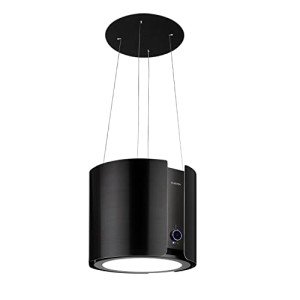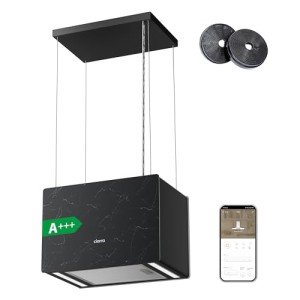How To Explain Island Extractors To Your Grandparents
페이지 정보
본문

Island Extractors: A Comprehensive Guide to a Unique Industry
In the world of extraction industries, couple of sectors record the imagination as vividly as that of island extractors. These specialized entities concentrate on the extraction of important resources, both sustainable and non-renewable, from island vent hood ecosystems. This post looks into the complex world of island extractors, discussing their operations, ecological effects, and the future of this niche market.
Comprehending Island Extraction
Island extractors are companies or individuals that engage in the extraction of natural resources found on islands. This extraction can consist of a variety of materials, such as minerals, nonrenewable fuel sources, and even marine resources. Given the special ecosystems found on islands, the extraction process can present both chances and inherent obstacles.
Classifications of Island Extraction
Island extraction can normally be classified into several categories:
| Category | Description | Examples |
|---|---|---|
| Mineral Extraction | The elimination of minerals from the earth | Kaolin, Bauxite, Iron Ore |
| Nonrenewable Fuel Source Extraction | Extraction of fuels formed from raw material over centuries | Oil, Natural Gas |
| Marine Resource Extraction | Harvesting resources from oceanic environments | Fish, Seaweed, Shellfish |
| Sustainable Resource Extraction | Extraction of sustainable resources | Timber, Freshwater |
The Process of Island Extraction
The extraction process itself can vary significantly based on the resource in question. The procedures for extracting oil diametrically vary from those for harvesting seafood.
Steps in the Extraction Process
- Exploration: This phase includes geological surveys and preliminary research studies to evaluate the capacity of the resource.
- Regulations Compliance: Compliance with local and worldwide ecological laws is crucial to make sure sustainable practices.
- Extraction: This consists of drilling extractor hood for island oil or mining for minerals, and can cause substantial disruption to regional ecosystems if not managed properly.
- Transport: Extracted resources typically require transport back to the mainland or other markets, frequently including using ships and barges.
- Post-Extraction Restoration: Efforts to restore the environment post-extraction are vital to reduce long-lasting impacts.
Environmental Impact of Island Extraction
Given the vulnerable nature of island extractor fan kitchen environments, the environmental effect of extraction activities can be significant.
Secret Environmental Concerns
- Environment Destruction: The physical removal of landscapes can devastate regional flora and fauna.
- Contamination: Resource extraction can introduce toxins, leading to ocean acidification, water contamination, and air quality deterioration.
- Coastal Erosion: Activities can exacerbate coastal erosion, changing the natural landscape and affecting regional neighborhoods.
- Biodiversity Loss: Extractors frequently interrupt regional ecosystems, positioning native species at threat.
Mitigation Measures
To counteract these effects, Island Cooking Hood island extractors are increasingly adopting sustainable practices that include:
- Implementing stricter ecological policies
- Utilizing innovation for much safer extraction processes
- Carrying out thorough environmental effect evaluations (EIA)
- Engaging with regional communities throughout planning and operation stages
The Future of Island Extraction
As worldwide need continues to increase for natural resources, the future of island extractors appears appealing yet complex. Numerous elements will form the trajectory of this market in coming years:
- Technological Advancements: Innovations in extraction technology may result in more effective and less environmentally disruptive techniques.
- Regulative Changes: As environment modification becomes an ever-pressing concern, stricter guidelines might redefine extraction practices, prioritizing sustainability.
- Pressure from Environmental Groups: Increased advocacy for island Cooking Hood the protection of biodiversity and environments can influence functional protocols.
- Shift towards Renewable Resources: A growing emphasis on renewable resource options might alter the focus from non-renewable extraction to sustainable practices.
Regularly Asked Questions
What resources are typically extracted from islands?
Common resources extracted from islands include minerals, fossil fuels, lumber, freshwater, and marine resources such as fish and seaweed.
How do island extractors ensure sustainability?
Island extractors can make sure sustainability by sticking to environmental guidelines, integrating technology that reduces impact, and bring back environments post-extraction.
What are the major challenges dealt with by island extractors?
Challenges consist of compliance with guidelines, handling environmental impacts, logistical issues related to transport, and engaging with local communities affected by extraction.
Are there any significant island extraction projects?
Yes, numerous tasks exist globally, consisting of mineral mining in the Caribbean, oil drilling in the North Sea, and sustainable fish farming initiatives in Southeast Asia.
The world of island cooking kitchen extractor hood island - https://milespot65.werite.net/ - extractors is a complicated interaction between economic chance and environmental obligation. As this industry evolves, the obstacle will be to stabilize resource extraction with the requirement to protect fragile kitchen extractor hood island ecosystems. By embracing sustainable practices and engaging with regional neighborhoods, island extractors can create a path that respects both nature and market, guaranteeing that these unique environments are preserved for generations to come.


